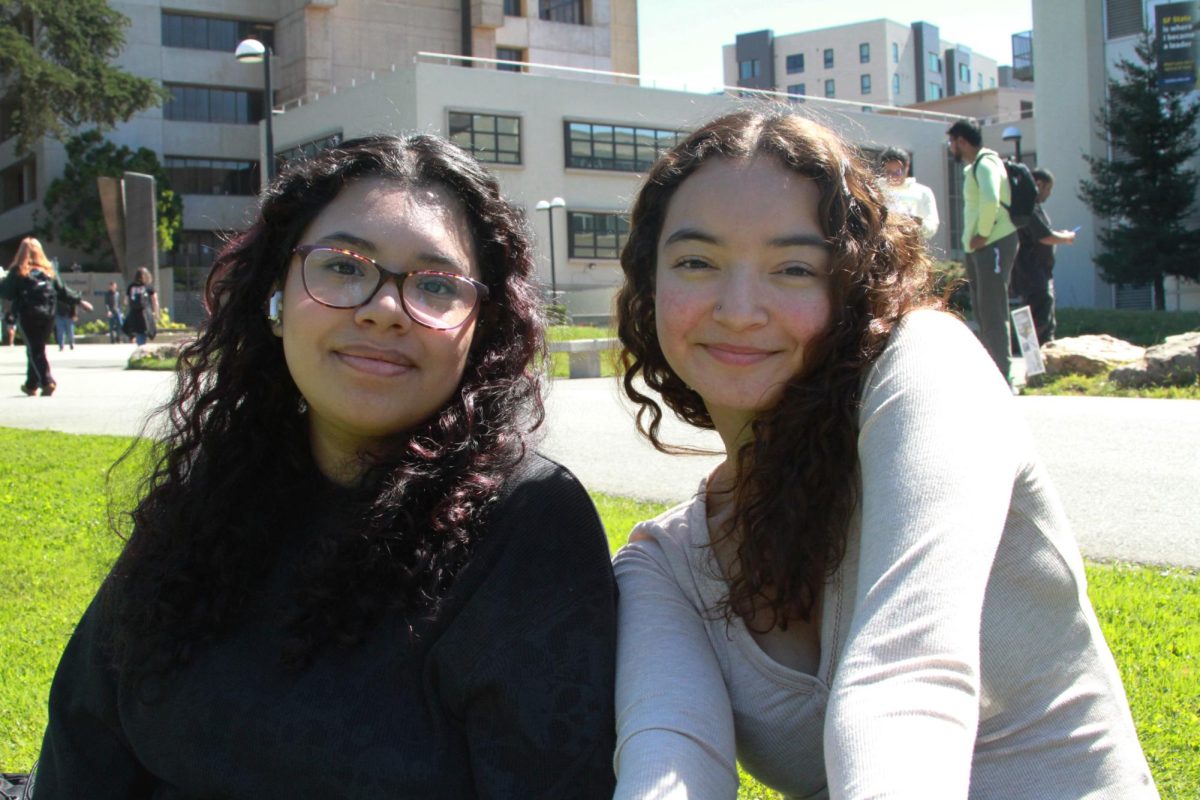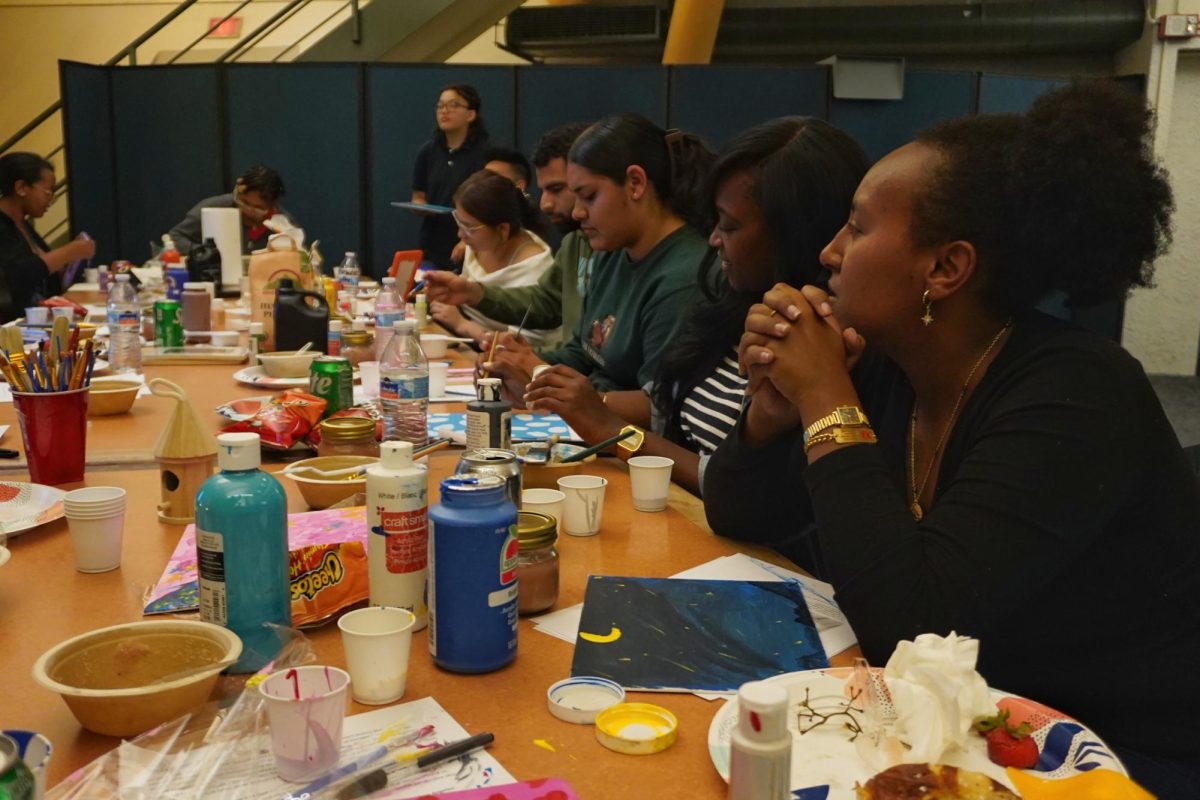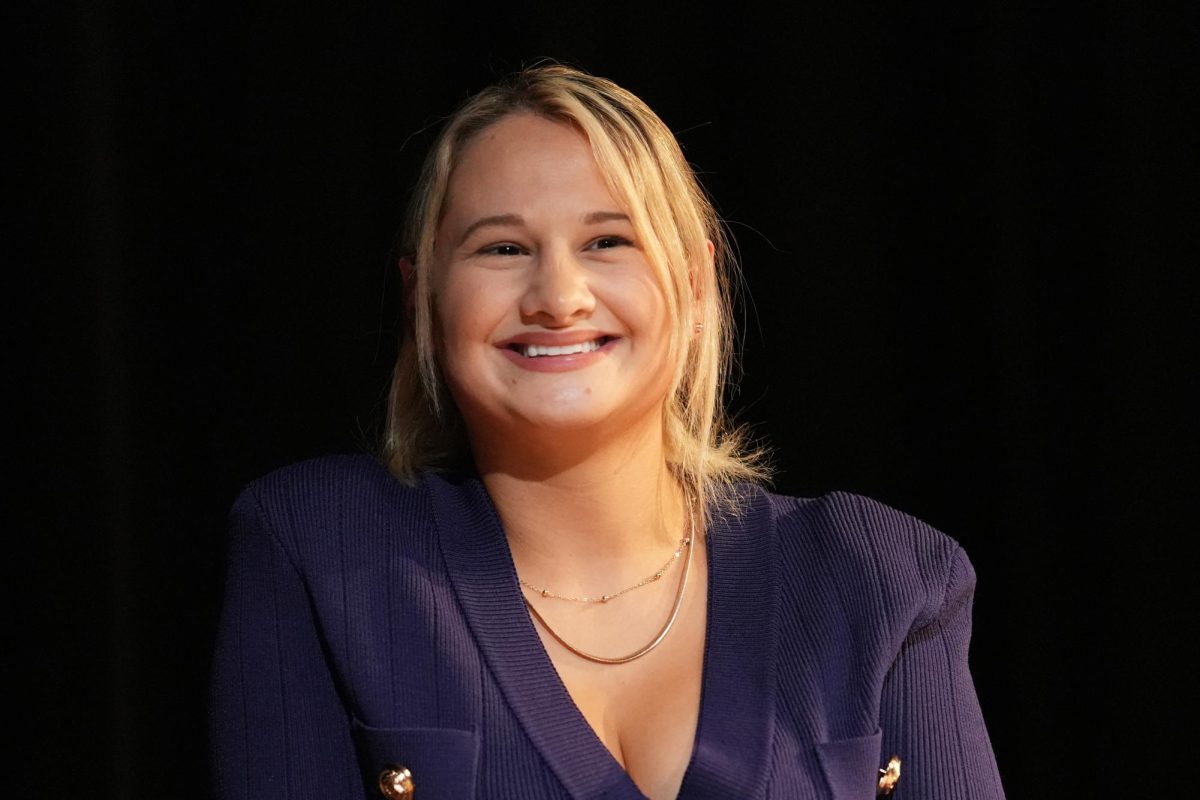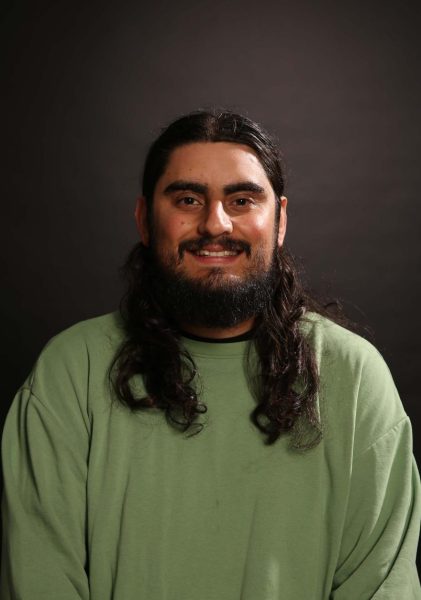The decline in Fall 2023 enrollment has forced San Francisco State University to cancel classes, create faculty uncertainty and reduce funding.
The CSU’s reduced funding to SFSU has forced all departments to shorten their course catalogs, according to the newly released spring scheduling.
Course reduction differs among schools; certain subjects were affected more than others. The budget cuts impacted the entire campus. For instance, the Department of Biology wanted to keep all the courses they proposed for Spring 2024 but will offer fewer courses next year due to the budget cuts.
Ron Marzke, associate dean of the College of Science and Engineering, collaborated with departments in the College of Science and Engineering to develop the Spring 2024 class schedule.
This year has been the most challenging due to significant budget cuts, the largest he has seen according to Marzke.
“During that time, this is the worst I’ve seen. And most anybody you ask would say the same,” Marzke said.
Marzke has been at SFSU for 23 years on campus but hasn’t held the positions of associate dean or department chair for that entire time. Marzke has had direct knowledge of the budget over the past 10 years.
If a course is considered for not being offered the following semester, faculty are made aware of potential course cutbacks in early October if that course was slated to be offered in the spring semester. Marzke explained that professors usually know by September if their course is affected. By mid-October, courses involved in discussions between college departments are identified. Submission to the University is required in early October.
Marzke echoed a sentiment shared around campus.
“Do we want to cut courses from a schedule? No, we don’t,’” Marzke said. “But every semester, we have to ask the question, given this budget, ‘What do we have the opportunity to make available?'”
“I’m disappointed that we weren’t able to offer the courses, all the courses that the departments proposed because the departments made really good efforts to propose schedules that made sense,” Marzke said.
Devon Monser is a second-year biology major. Monser found out that a section of a course he needs, BIOL 350 Cell Biology, is on a list revealed on Reddit and will not be available next semester.
“It might delay it [graduating], but I’m hoping that won’t happen, but it’s worrying,” Monser said.
The uncertainty makes Monser feel anxious and nervous about the future.
When Monser was in his first year of trying to sign up for classes, he struggled to find good classes at convenient times. However, during his second year, he could enroll in the classes he needed with greater ease.
“This year, there was only one-time slot for the biology class and that made it so that I couldn’t take a different class that I also wanted to,” Monser said. “I had to take the biology one instead.”
Vance Thomas Vredenburg, biology department chair, said shortening course offerings took a lot of work but was something the department didn’t want to do.
“I want to make sure people understand that the leadership in biology, the Department of Biology, didn’t choose the classes. They were chosen by the college, the classes that were going to be cut,” Vredenburg said.
Vredenburg explained how the classes are chosen based on past enrollment. If a class has low enrollment or is optional, it may not be offered again. The department aims to provide the classes students need and want.
“For many of our biology majors, when students get to the upper division units, they have electives they can take. The idea is to give the students a broad breadth of classes they can choose from,” Vredenburg said. “For example, there’s some requirements that you can take like six different classes or even more. What the University is doing is saying, ‘Well, maybe we shouldn’t offer all six, let’s offer four.'”
Vredenburg wants to make it clear that the changes are not permanent, and that classes might become available again in a future semester.
“They’re basically saying we want to offer this again but instead of offering this elective every single semester, we’ll offer it once a year, or maybe once every two years,” Vredenburg said “So they’re looking for anyways and by they, I mean the administration, which I am not a part of, are looking for ways to save money.”
Vredenburg said the total of sections not being offered translates to a 10% decrease in Spring 2024.
The Biology department offered 249 courses in Spring 2023; this Fall semester, the number dropped to 237, a 4.82% decrease and after the recent release of the Spring 2024 course, Biology is offering 223 courses, amounting to a 10.44% decrease. All course totals were via SFSU class search.
“Some of the classes have multiple sections that students sign up for,” Vredenburg said “There’s a lecture and then there is a lab afterward. Those labs are what we call the section. The students sign up for the sections, and then they get into the lecture. If you look at just the sections, all the offerings of time with lectures and faculty with students, it’s about 10%.”
The reason that the Department of Biology is getting these cuts is because of the decline in enrollment.
“We’ve been told by the administration that the number of undergraduate students at SF State right now is the same as it was in 1979,” Vredenburg said.
Vredenburg is frustrated by the smaller course catalog. However, the Department of Biology at SFSU has remained strong.
“That’s one of the things that is difficult. The University is getting less money from the CSU system because we have fewer students, but we still have to teach as many students as we had before. So it’s unfair, it’s really sad,” Vredenburg said.
Vredenburg stated that the biology department was already underfunded.
“It’s a challenge to do what we all want to do, which is teach our students and change our society by doing this amazing service that we all do here,” Vredenburg said.
Carmen Domingo, the dean of the College of Science and Engineering, which overlooks the biology department, is hopeful that in the future, they will be able to offer the same range of courses to all students.
“Compared to last spring, this spring you’ll see slightly fewer choices, but it should not impact how well the students progress to the major,” Domingo said.
Domingo said that at the College of Science and Engineering, they can look through the records to see where students are at or what classes they’ve taken, and they can project what students would need next semester to graduate.
“We did those analyses, and then worked with the chairs to say, ‘You know what? We need these number of sections to ensure that the students are moving at the progression that’s anticipated for them to graduate, either this semester or within if they’ve been there for two years, what’s the two-year progression,” Domingo said.
Having a smaller course catalog can cause some students to feel anxious, especially if they don’t know fewer courses will be offered. Domingo said the departments want students to stay calm.
“Right now, the uncertainty is sometimes more anxiety-provoking than just seeing it. My hope is when they see the schedule and they see their choices, they’re going to feel reassured that they have the classes they need to progress with their major. If there’s some major issues, they can reach out to us and we can see if we can fix it,” Domingo said.
One example of that happening recently was when some students reached out to Domingo about a class that they love called Bioinformatics and Genome Annotation 638/738, a paired course offering.
“This class serves about 20 students each semester,” Domingo said “The class has been offered this semester to about 20-something students. We determined that we couldn’t offer it next semester, but we have every intention to offer it again next year.”








